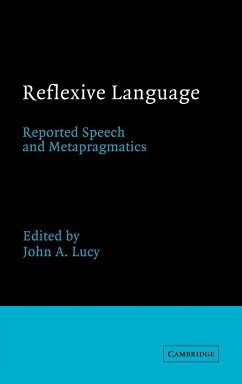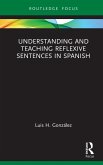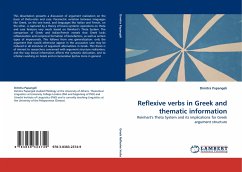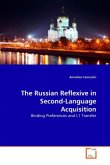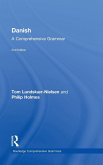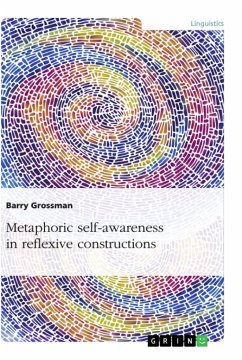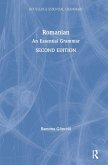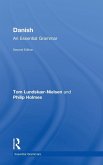This volume examines the nature and significance of the reflexive aspect of natural language, its capacity to represent its own structure and use through reported speech and explicit statements about language-use (metapragmatics). It adopts a truly interdisciplinary approach. Part I contains papers outlining the volume's theoretical scope. Parts II and III contain anthropological case studies which show the formal devices behind reflexive usage in a variety of different languages and how they function in cultural life. Finally, Part IV shows the importance of understanding reflexive language in many other areas of the humanities and social sciences, including philosophy, psychology, religious studies, sociology and literary studies. Many of the contributors are senior scholars of international reputation: all are innovative researchers. Cumulatively their work here represents a critique of those researchers in the humanities and social sciences who fail to take language seriously both in the lives of those they study and in their own research practices.
Table of contents:
Part I. Theoretical Foundations: Part II. The Relation of Form and Function in Reflexive Language: Part III. Text, Context, and the Cultural Functions of Reflexive Language: Part IV. Interpretation, Reported Speech, and Metapragmatics in the Western Tradition.
This volume examines the nature and significance of the reflexive capacity of natural language, its ability to represent its own structure and use through reported speech and explicit statements about language use (metapragmatics).
These innovative essays represent a critique of those researchers in the humanities and social sciences who fail to take language seriously.
Hinweis: Dieser Artikel kann nur an eine deutsche Lieferadresse ausgeliefert werden.
Table of contents:
Part I. Theoretical Foundations: Part II. The Relation of Form and Function in Reflexive Language: Part III. Text, Context, and the Cultural Functions of Reflexive Language: Part IV. Interpretation, Reported Speech, and Metapragmatics in the Western Tradition.
This volume examines the nature and significance of the reflexive capacity of natural language, its ability to represent its own structure and use through reported speech and explicit statements about language use (metapragmatics).
These innovative essays represent a critique of those researchers in the humanities and social sciences who fail to take language seriously.
Hinweis: Dieser Artikel kann nur an eine deutsche Lieferadresse ausgeliefert werden.

